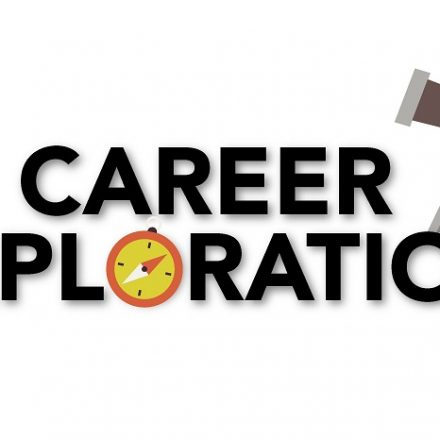
Crafting a Life’s Work: The Art and Architecture of a Meaningful Career
Introduction: More Than Just a Job
The word career evokes more than a mere sequence of occupations; it suggests a path—a purposeful progression shaped by ambition, values, and time. A career is not simply about earning a living; it is about crafting a life. It reflects who we are, what we stand for, and how we contribute to the world around us. Unlike a job, which can be temporary or transactional, a career is an evolving narrative, rich with intention, growth, and fulfillment.
In an era defined by volatility, rapid technological change, and shifting societal values, the nature of a career is undergoing profound transformation. No longer linear or bound to a single field, the modern career is multifaceted, adaptive, and deeply personal. To build a meaningful career today requires more than qualifications—it demands vision, agility, and a nuanced understanding of oneself and the world.
The Classical View vs. The Contemporary Career
Traditionally, a career followed a structured trajectory: education, entry-level employment, gradual promotion, retirement. Stability, longevity, and loyalty to one organization were often the markers of success. In this model, professional identity was tightly linked to external status—titles, salaries, and institutions.
Today’s careers are more fluid. Individuals may pivot across industries, combine multiple roles, or pursue parallel paths. This shift reflects broader changes in the economy and culture:
-
Technological disruption has redefined industries and created entirely new professions.
-
Globalization has expanded access to opportunities while increasing competition.
-
Values-driven employment has become more prominent, especially among younger generations who seek purpose alongside paychecks.
-
Lifelong learning is now essential, as knowledge and skills must be continually updated.
The modern career, therefore, is less a ladder and more a mosaic—an intricate composition of experiences, ambitions, and adaptations.
Choosing a Career: Aligning Purpose with Potential
At the heart of a fulfilling career lies alignment—between what you do, what you’re good at, and what matters to you. While external advice and market trends can guide decision-making, the most enduring careers are built upon internal clarity.
Key considerations when choosing or evolving a career:
-
Personal strengths and interests: What energizes you? What skills come naturally?
-
Core values: Do you value stability, creativity, autonomy, service, or innovation?
-
Lifestyle aspirations: How important are location, flexibility, travel, or work-life balance?
-
Long-term goals: Are you building toward leadership, mastery, impact, or legacy?
Making career choices through the lens of these questions leads to decisions that are not only strategic but also soulful. A successful career should feel like a natural extension of one’s identity, not a departure from it.
Building a Career: The Pillars of Progress
Once a direction is chosen, the art of career-building begins. It is an ongoing process of development, refinement, and relationship-building.
1. Skill Mastery
Continual learning is the foundation of career longevity. In a competitive and fast-evolving market, skills can quickly become obsolete. Staying current and expanding your expertise—whether through formal education, certifications, or self-directed study—is non-negotiable.
2. Professional Reputation
Your reputation is your currency. Delivering consistent quality, maintaining integrity, and communicating effectively set you apart. In a world of instant reviews and global networks, credibility matters more than ever.
3. Networking and Mentorship
No career is built in isolation. Relationships open doors, offer support, and provide insight. Seek mentors who challenge and champion you, and offer the same to others in return. A strong professional network can be the single most valuable asset in navigating transitions and seizing opportunities.
4. Strategic Risk-Taking
Growth often requires stepping outside comfort zones. Whether it’s changing industries, starting a business, or relocating, bold decisions can lead to defining moments. Calculated risks—not reckless leaps—often catalyze the most significant career breakthroughs.
Navigating Career Transitions
Career paths are rarely straight. Setbacks, redirections, or even pauses are natural and, when approached thoughtfully, can be deeply enriching. Whether due to external forces (like layoffs or economic shifts) or internal desires (such as burnout or personal evolution), transitions are both challenging and transformative.
How to navigate transitions gracefully:
-
Reflect deeply: What is driving the change? What lessons are emerging?
-
Reassess values and goals: What does success look like now?
-
Skill up strategically: Use the transition period to acquire new, relevant skills.
-
Leverage your network: Reach out to former colleagues, mentors, or industry groups.
-
Stay open-minded: Sometimes, the most rewarding paths are those we hadn’t initially considered.
A detour is not a failure; it can be the scenic route to an even richer destination.
The Intersection of Career and Identity
Our careers do not exist in a vacuum—they intersect with every part of who we are. For many, professional identity becomes intertwined with personal worth. While passion and commitment are important, it’s equally vital to maintain a healthy boundary between who you are and what you do.
Maintaining balance includes:
-
Cultivating interests outside of work
-
Building relationships that are not career-dependent
-
Practicing self-care and mindfulness
-
Recognizing that success is not always visible or measurable
A fulfilling career is one that enhances your life, not one that consumes it entirely.
The Future of Careers: A Canvas of Possibilities
Looking ahead, the future of careers is both unpredictable and rich with potential. Artificial intelligence, remote collaboration, and new economic models are reshaping what work looks like. Traditional industries are being reinvented; entirely new sectors are emerging.
To thrive, professionals will need:
-
Agility: The ability to pivot and learn rapidly
-
Creativity: The capacity to innovate and solve complex problems
-
Empathy: The emotional intelligence to lead and collaborate effectively
-
Resilience: The strength to endure and adapt through change
Those who approach their careers as evolving works of art—layered, intentional, and responsive—will not only survive but flourish.
Conclusion: Your Career as a Masterpiece
A career is more than a means to an end—it is a narrative, a design, a reflection of what one values and envisions. It’s built not only with credentials but with courage, not only with ambition but with authenticity.
Whether you are just beginning, at a crossroads, or reflecting on decades of work, remember that a career is not about perfection—it’s about progression. It is an act of continuous creation, shaped by choices both large and small.
In the end, the most meaningful careers are not those that follow the most predictable routes, but those that honor the unique imprint of the individual. It is in that pursuit that work becomes not just labor, but legacy.





